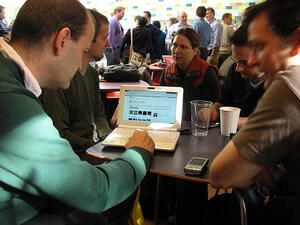This gives citizens the freedom to call directly on the Commission to propose new laws if they can collect one million signatures of support from at least seven Member States. They have one year in which to collect the signatures. Twitter and Facebook are some of the platforms being used for many of the initiatives.
One initiative is the 'Fraternité 2020' which is aimed at enhancing EU exchange programmes (such as Erasmus and the European Voluntary Service) in order to contribute to a united Europe based on solidarity among citizens. Their website opened for signatures on 26 October 2012. With representation in all 27 EU countries, they have managed, so far, to collect 56 799 signatures.
Another initiative is the 'Water is a human right'. Their goal is to ensure water and sanitation is available, accessible and affordable for all people in Europe. They started their online and paper collection of signatures in early September and have so far collected 52 392.
Meanwhile, the 'One Single Tariff' initiative has yet to launch their online collection system but has made headway in gaining support with ample press coverage. They are seeking to end all roaming fees within EU borders so that calls from one Member State to another can be for the same price, regardless of the Member State you pay your bill in. They want to see the EU as one-tariff zone.
As well as social media, initiatives are also amassing signatures through the European Commission's online signature collection systems on its own servers.
The Commission will carefully examine those initiatives which have successfully collected a million signatures. Within three months after receiving the initiative's request, Commission representatives will meet the organisers so they can explain in detail the issues raised in their initiative, before having the opportunity to present their initiative at a public hearing in the European Parliament. The Commission is not obliged to propose legislation as a result of an initiative, but if the Commission decides to put forward a legislative proposal, the normal legislative procedure will be carried out.
This means the proposal is submitted to the legislator (generally the European Parliament and the European Council or in some cases only the European Council) and, if adopted, it becomes law.
Source: ec.europa.eu
Picture: © tonyhall via Flickr

